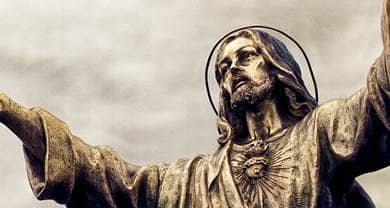- Trending:
- Pope Leo Xiv
- |
- Israel
- |
- Trump
- |
- Social Justice
- |
- Peace
- |
- Love

RELIGION LIBRARY
Lutheran
Influences
There are at least two important intellectual and cultural movements with a strong influence on Luther: Renaissance humanism and nominalism. In addition, there are several historical developments that created a fertile context for Luther's reform.
The Renaissance is a period in western cultural history lasting from roughly the 14th through the 16th centuries. The word literally means "rebirth." One of the characteristics of the Renaissance is an interest in the classical culture of ancient Greece and Rome, rather than the scholastic tradition that dominated the Middle Ages.
Humanism is an intellectual movement within the Renaissance that takes as its motto ad fontes!-"to the sources!" This "humanism" is associated with what we today call the Humanities, the study of the liberal arts. The idea is that a study of classical texts (in their original languages) can change lives, producing scholars and civic leaders who live a life of virtue for the greater good.
Luther was strongly influenced by humanism. As a Bible scholar, he relied on the critical edition of the New Testament in Greek published by Erasmus (the greatest of the humanists) in 1516, rather than the Church's official Latin version of the Bible (called the Vulgate). An example of the effect of close attention to original languages is Luther's argument that marriage is not a sacrament (eventually Protestants will have two sacraments rather than the Catholics' seven). Paul had written in Greek that marriage was a "mysterion," which had been translated into Latin as "sacramentum." Use of the original Greek convinced Luther that marriage was not sacramental.
Luther was trained at the University of Erfurt in nominalist theology. Nominalism is a development of the theology of Thomas Aquinas (ca. 1225-1274). Nominalism rejected a widely accepted philosophical idea that behind every object is a divine essence and that we know what objects are because our minds contain a complete set of essences by which we recognize the objects. The most famous nominalist is William of Ockham (ca. 1287-1348). "Ockham's Razor" is the principle that, all things being equal, the simplest explanation is the best. Ockham used this "razor" to argue that there is no divine essence "behind" any object; our minds simply lump objects together and we give the groups a name (so, "nominalism"). In the world there are just objects and our minds, not objects, minds, and essences.
This impacted theology by arguing that, since there are no divine essences in the world, it is impossible to know anything about God just by looking at the world. Though God created the world, the world does not reveal God. The only things we can know about God are what God chooses to reveal in scripture, and God tells us only what we need to know for our salvation. God is otherwise completely hidden. While Luther rejected some parts of his training in Roman theology, this emphasis on revelation, particularly the revelation conveyed through the Christian scripture, as the only secure route to knowledge of God clearly had a strong influence on him, resulting in his doctrine of "scripture alone" (sola scriptura).
Luther was not the first church reformer by any means, nor the only one of his day. The Gregorian Reform headed by Pope Gregory VII (1073-1085) tackled precisely the same issues of moral integrity of clergy and church that Luther did. John Hus (ca. 1370-1415) was excommunicated and burned at the stake for placing the authority of the Bible over that of the church, attacking indulgences, and questioning papal infallibility. But Luther came at a unique moment in history, and the confluence of several factors meant that his reform became a movement that formed a church separate from the Roman Catholic Church for the first time in the West.
This unique convergence of factors include the following: Luther came at a time of rapid urbanization (and the early Reformation was largely a city affair). He came soon after the invention of the moveable type printing press. (It is estimated that 6 million books were printed between 150 and 1500, more than in the previous thousand years. From 1517 to 1520, however, about 300,000 copies of books and tracts by Luther alone were printed.)
Luther came at time when there was a middle class growing in size and prestige between the nobility and the peasants. He came at the time of the first stirrings of nationalism; he was protected by German princes, and part of his anger came from the idea that the Italian Church was taking advantage of Germans. He came soon after the plague and the Hundred Years' War had devastated a huge percentage of the European population, creating great anxiety. He came soon after the Avignon papacy and the Great Western Schism put into power two and then three popes at once, calling into question the ordination of priests and the efficacy of sacraments performed by them. All of these shifts created religious unease, and a kind of tinder box into which the match of Luther's theological claims were thrown.










